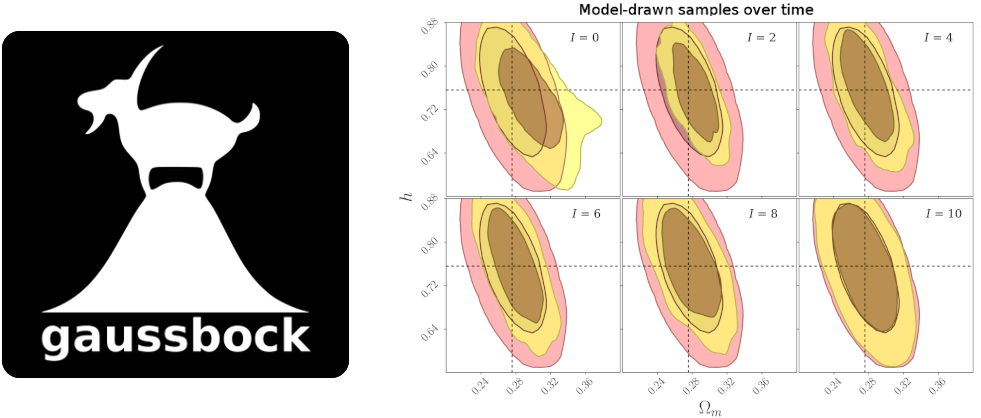
Fast parallel-iterative cosmological parameter estimation with Bayesian nonparametrics
Current efforts in cosmological parameter estimation often suffer from both the computational costs of approximating distributions in high-dimensional parameter spaces and the wide-spread need for model tuning. With these contemporary problems in mind, Gaussbock was developed as an easy-to-use tool for embarrassingly parallel high-dimensional parameter estimation with expensive likelihoods for the wider astronomy community. It is, however, a general-purpose posterior approximation tool suitable for many applications. In the above picture, you can see the evolution of the fist ten steps of the iterative fitting process on a 26-dimensional Dark Energy Survey Y1 approximation.
With a foundation in Bayesian nonparametrics, variational inference, estimation theory and parallel computing, Gaussbock builds on our recent research in iterative sampling methods and supports both multi-processing for local cluster computing and MPI for external clusters and supercomputers, without any effort on the user’s side. In running this algorithm on the full Dark Energy Survey Y1 posterior, we demonstrate the viability of our approach in our corresponding paper.
Since Gaussbock is on PyPI, simply type pip install gaussbock in your terminal to install it. This project was developed for Python 3, and the installation process will automatically install any necessary dependencies. Documentation and a quickstart guide on how to use Gaussbock can be found in a public code repository here, as well as in the open-source code’s docstrings.


